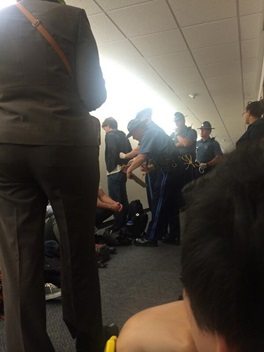
June 9, 2014; Boston Globe
Boston is a very expensive city in which to live, and that means people with less income get pushed out of neighborhoods that are more central to the city. Lucky that Boston has a great public transportation system, you might say, but it is at a price that many making lower wages struggle to afford. And when it comes to young people, they may be living in a cultural Mecca, but how do you travel to work and school, never mind to all that richness?
In Boston, a wide coalition of groups is addressing this issue. The Youth Affordabili(T) Coalition writes, “We are the youth riders of Boston-area Youth Organizing Project (BYOP), Roxbury Environmental Empowerment Project (REEP) and T Riders Union (TRU) of ACE, Chinese Youth Initiative (CYI) of Chinese Progressive Association (CPA), Boston Student Advisory Council (BSAC) / Youth on Board and the YOUNG Coalition, El Movimiento, Dorchester Bay Youth Force, Bikes Not Bombs, The Food Project, Groundwork Somerville Green Team, Chelsea Creak Action Group (CCAG) Youth, Dorchester Bay Youth Force, and Chelsea Collaborative ECO.”
Sign up for our free newsletters
Subscribe to NPQ's newsletters to have our top stories delivered directly to your inbox.
By signing up, you agree to our privacy policy and terms of use, and to receive messages from NPQ and our partners.
Twenty-one young people associated with this coalition were arrested on Monday in Boston as they protested for a reduced-price youth pass for public transportation. Around 30 members of the Coalition participated in a sit-in outside of Secretary of Transportation Richard A. Davey’s office at the Transportation Building in Boston—staying after the offices had closed for the day—demanding that the city provide a $10 unrestricted monthly MBTA pass for people ages 12 to 21.
Despite arresting most of the protestors, transportation officials issued a statement assuring that “MassDOT & the MBTA have expressed a willingness to continue to work with advocates to find ways to make public transportation more accessible and affordable.” We are not sure what that means.
Secretary Davey wrote in a letter to the coalition that implementing the group’s request, even as a pilot involving just 2,500 people, would cost $1.95 million, “not including the additional costs for eligibility determination and distribution.” But the group disagrees with that estimate, countering with an assertion that young people spend under $30 a month on the T.—Ruth McCambridge













